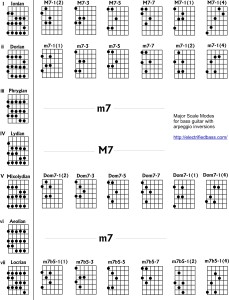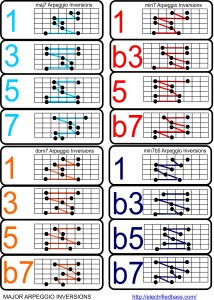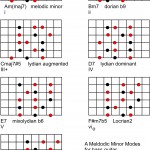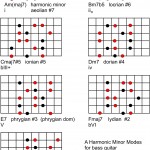Tips
Preface: I’ve been playing a long time and I am primarily self taught but I did have personal lessons with some great musicians. The ONLY reason this page exists is because some people reached out to me for assistance and lessons. There are players that have devoted their lives to teaching music, have a great system of teaching in place and I would suggest reaching out to them as well.
Here are a few websites you can checkout for lessons:
http://www.adamnittimusiceducation.com/
http://www.scottsbasslessons.com/
http://tonygreybassacademy.com
Here is a Facebook page where I share some charts and ideas: https://www.facebook.com/awesomebasslessons/
Below are some tips I’ve compiled over the years that I hope are helpful. I mostly learned to play by playing to and “transcribing” bass lines from my favorite records and playing rock / fusion bands decades ago. I would learn things by ear and memorize it, therefore internalizing it. I rarely relied on written charts or tab and feel these can (if used as a crutch) impede the development of a good musical ear / sense.
Tip#1 If you feel you must have personal lessons, work with a teacher of like mind with a similar value system. The way they present material should make sense to you. They should understand and respect your goals and vice versa. If you cannot afford personal lessons or if you are self motivated, simply teach yourself. There are many resources available online and some are free.
Tip#2 Master your own mind by learning how you learn. If you allow outside forces to completely impose a system of learning it can slow down your progress. Take what you are presented and rearrange it so it’s compatible with how you learn. In the end a great teacher will teach you how to teach yourself and allow you to discover and unlock the secret your own process.
Tip#3 Keep a categorized practice log. Log your progress every day. Change up your routine to keep progressing. Here is a great article on Practicing ( part1 | part2 ) by Adam Nitti.
Tip#4 Practice as much as you can and keep it fun. If it isn’t fun you are likely to self-limit. It is still hard work, there’s no way around that.
Tip#5 Listen to the music that inspires you (that is similar to the music you want to play) as much as possible. Immerse yourself in it, but don’t be afraid to explore other types of music. Keep an open mind and open ears.
Tip#6 Make your own music. It doesn’t matter what level you play on, if all you know is a major triad, make music with it. Making music is human. You are qualified by virtue of being a human and having picked up an instrument. If you’ve listened to music a lot you already probably “know” more than you might think. As you learn new concepts immediately start making music with them. Spend time with your instrument without accompaniment, just experimenting with all of the sounds it can produce. Try to get in touch with your internal music; sometimes taking breaks from listening to music helps.
Tip#7 Sit/stand straight, breath deep and relax. Experiment with different positions and strap heights sitting and standing until it feels effortless. Don’t use too much force on the right or left hand, be gentle and play expressively. If you spend a lot of time chording and playing in the upper registers, consider a foot stool and classical guitar position or a performer stand. Check out http://www.alexandertechnique.com.
Tip#8 Practice at different tempos. Play things you are working on slowly first until its nearly perfect then play faster gradually. Break things that you practice down into small sections. Focus on the rough spots that you are struggling with. The goal here is to “smooth out the rough spots.”
Tip#9 Practice with different eqs and pickup position and with and without reverb/delay because all of these should affect your expression. Avoid practicing with the highs rolled off all of the time. This can have a negative impact on your technique as it can hide string and fret noise. Practicing with a flat eq is a great default choice.
Tip#10 Practice to music, a metronome and a drummer or drum machine. Learn bass lines, chords and melodies to your favorite songs. The bass is capable of many things. Check out iRealB Pro for the ipad and iphone, it is great for practicing to backing tracks.
Tip#11 Fast impressive figures can add sonic pyrotechnic interest but there is more emotional power in slower melodic movements.
“I’ve learned that people will forget what you said, people will forget what you did, but people will never forget how you made them feel”
– Maya Angelou
Tip#12 When it comes time to play, it is not really time to be thinking a lot, that should mostly be done during your practice time. Divide up your practice times from your playing times. I try not to mix them, because I believe it is two different mindsets (at least for me).
Tip#13 Surround yourself and play with musicians that are markedly more advanced than you are (without becoming elitist of course). Join a band. Play and jam with your friends. Have fun, its the best way to improve!
Scales and Arpeggios…Scales and Arpeggios…Scales and Arpeggios…
For fun:
Here are some basic major modes and arpeggio inversions presented in ways that made sense to me.
Harmonic & Melodic Minor Modes & Arpeggios were fairly difficult to find for bass so I put these charts together some time ago. Please enjoy and share them freely.



